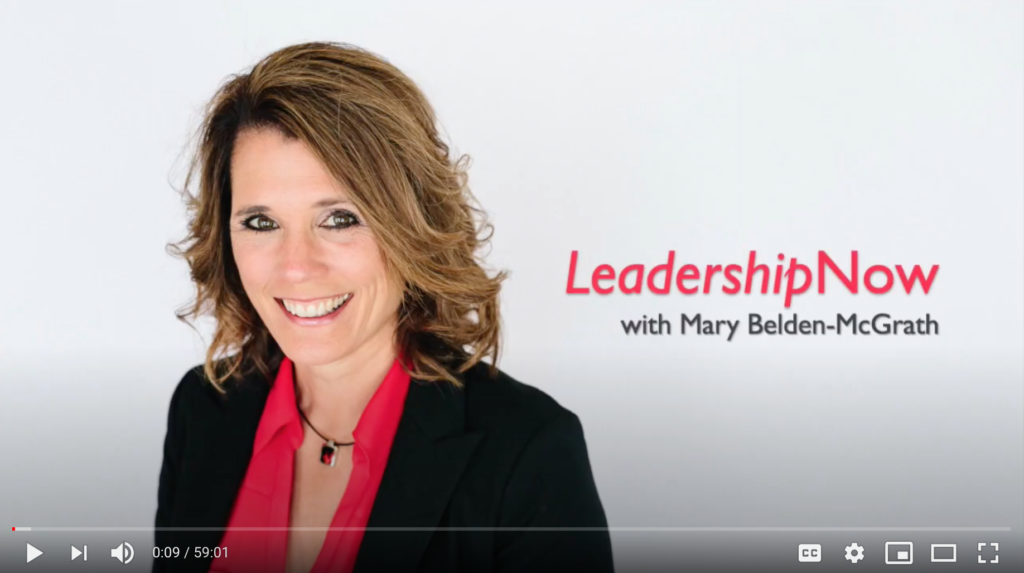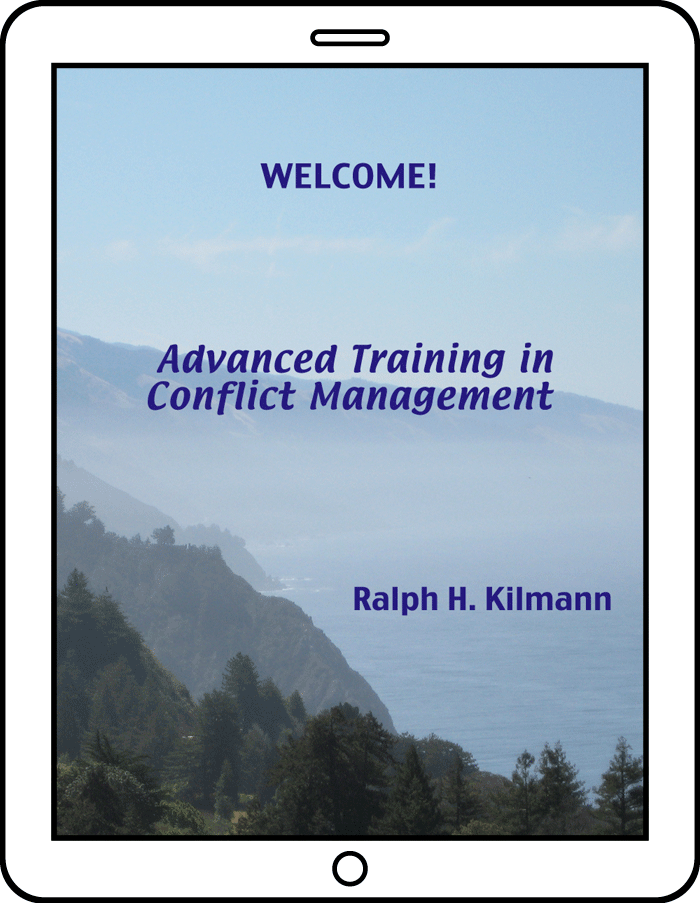

MY WEBINAR ON HOW TO RESOLVE WICKED CONFLICTS
Ralph H. Kilmann, co-author of the Thomas-Kilmann Instrument (TKI)
In November 2020, I participated in a 1-hour webinar in which I discussed this truism: One person cannot possible solve a complex problem. Instead, we must assemble a very diverse group of experts that are relevant to the topic at hand, next help them create a healthy behavioral infrastructure so they can effectively communicate, listen, respect, and develop synergistic approaches with one another (which transcend any one of their specialties), and then give them the space, time, and leadership support to resolve the wicked, chaotic mess that surrounds them.
This one-hour webinar will provide you with a good preview (or review) of what’s covered in much greater detail and depth in our eight-hour, recorded, online course: ADVANCED Training in Conflict Management.
A Synopsis of Our Recorded Online Course: ADVANCED Training in Conflict Management
Our 8-hour ADVANCED Training (including a 134-page Course Manual) provides an even deeper understanding of the TKI. For example, you will learn how certain enduring psychological traits predispose people to use different modes for resolving conflict. Once you become aware of the connection between your traits and your modes, however, you’ll find it easier to use each conflict-handling mode as needed. In this advanced course, you’ll also learn the ten key principles of group process and then you’ll learn the five steps of problem management. And finally, all these key principles and action steps are all combined in the Problem Management Organization, or PMO for short. In a nutshell, this more advanced material is precisely what will allow you to use the TKI to help resolve complex conflicts and problems in a variety of social systems— including organizations, communities, and nations.
Course Outline:
- Welcome and Overview
- Learning Outcomes
- Seeing the Big Picture
- Foundations of Conflict Management
- Foundations of Psychological Type
- Group Process and the Process Observer (PO)
- The Process Observer Form
- Introduction to Problem Management and a Case Study
- Analyzing the Paul Marshall’s Case
- The Nature of Problems
- The Problem Management Organization (PMO)
- Graduation




